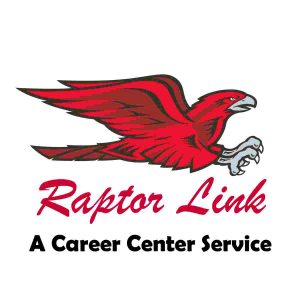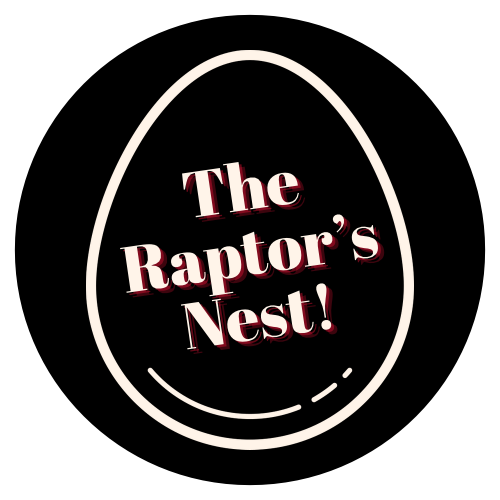| Written by Breanna R. |
We recently did a poll in the Rutgers–Camden official Facebook group for incoming undergraduate students 2018 asking what blog post topics you’d like to read. The results let us know that looking for an on-campus job is something you’d like to know more about. Although a handful of our posts touch upon on-campus employment (that you should try to find it, what it’s like), this post will give you the straightforward options for successfully finding it.
Find out if you’re eligible for the Federal Work Study Program (FWSP).
The FWSP is a financial aid program that’s awarded to students based on their Free Application for Federal Student Aid (FAFSA). You place yourself in consideration for eligibility for the FWSP when you complete and submit the FAFSA by the priority deadline, which was December 1, 2017 for incoming students. The priority deadlines are different for returning students, so, next year, when you fill out the FAFSA as a returning student, your priority deadline will be different. Check out priority deadlines here.

If you’re eligible, you’ll see “Federal Work Study” on your Award Letter, as well as a link to the Federal Work Study Job Application. You must then complete the application for job placement. For more information, check out the FWSP Videos on the Rutgers University Office Financial Aid site.
Check out the Job Location and Development Program (JLDP).
Just because you’re not eligible for Federal Work Study, it doesn’t mean that you can’t work on campus. The JLDP has a database that is updated daily through which you can find part-time or seasonal employment. This database includes both on-and-off-campus employment; however, there is a separate category for “on-campus jobs.” (Be sure to still check out the other categories, because there may be some on-campus jobs listed in other categories, as well.)
Access the database here.
Put together a resume.

Whether you’re applying for jobs on or off campus, you’ll most likely need a resume. The purpose of a resume is to provide a summary of your skills, abilities, and accomplishments for your potential employer to review and determine whether or not you’re a good fit for the position you’re applying for. When writing your resume, proofread it several times and have others review it as well. It may not seem like a huge deal, but the appearance, organization, and grammar/spelling-accuracy of your resume is something employers definitely look at. I’ve heard first-hand that, if a resume is “a mess” or appears it was “carelessly written,” employers won’t even review it and will move on to the next applicant.
Have a universal resume that keeps track of all of your past employment, volunteer work, awards and recognition, programs you’ve completed, and skills you’ve acquired; however, when you apply for a particular position, tailor the resume to specifically address the job responsibilities and expectations of that position, erasing any experience irrelevant to the job you’re applying for. The resume should be brief and concise.
If you want to elaborate more than a resume allows you to, I highly suggest creating a digital portfolio or online resume using a user-friendly site like WordPress. That way, you have an unlimited amount of space to talk about your accomplishments and, if your employer is interested in learning more about what you’ve provided on your resume, they’ll visit your website. Provide the website at the top of the resume with your contact information and feel free to mention it in any interviews you land. If you aren’t very tech-savvy, pay a visit to the Rutgers–Camden Writing and Design Lab and they can help you work on your website! That’s where I took the first steps to becoming comfortable designing and maintaining my personal WordPress account!
Visit the Rutgers–Camden Career Center.
The Career Center offers a wide range of services, including but not limited to resume building and review, interview techniques and preparation, and job and internship searching! Even if you aren’t one hundred percent certain what job you want to look for, having an adviser to talk it out with really helps you uncover what positions give you the most opportunity to apply and develop your skills and experience.
Heed my advice: Don’t wait to visit the Career Center. Making a visit early on in your undergraduate study will help you get a head start on all things career-related.
Create a RaptorLink account.

RaptorLink is an online career management system put in place by the Career Center. It provides access to thousands of jobs and internships from employers who have a relationship with the Career Center, a calendar of career-related events, a resume and portfolio builder, and more. You can create your resume and apply to jobs directly through the site. RaptorLink is a system for Rutgers University students only; however, alumni have access to the system as well.
Note: As of 2019, RaptorLink has been replaced by Handshake. Read more about this new resource tool here.
Attend professional development workshops and Student On-Campus Job Fairs.

Rutgers–Camden hosts job fairs throughout the academic year. Pay attention to your email or contact the career center to see when professional development workshops and job fairs are scheduled. At the fairs, employers meet, recruit, and even hire students on the spot! It’s an excellent opportunity to become educated about future employment opportunities and possible career paths, as well.
The first job fair for the 2018-2019 academic year will be held on Friday, September 7 in the Campus Center’s Multi-Purpose Room (MPR) from 10:30 a.m. to 12:30 p.m.
Network, network, network.
Always have a copy or two of your resume on you or a business card with your contact information. Roaming around a university’s campus and attending events exposes you to many more opportunities to network. When you meet someone new, talk to them about their interests and what they’re doing to work toward developing them. You never know when you may meet someone who has the same interests as you or who does something you didn’t think of doing before. Networking and collaboration is the way into a lot of career, research, and academic opportunities you wouldn’t have otherwise heard about or ventured into.


